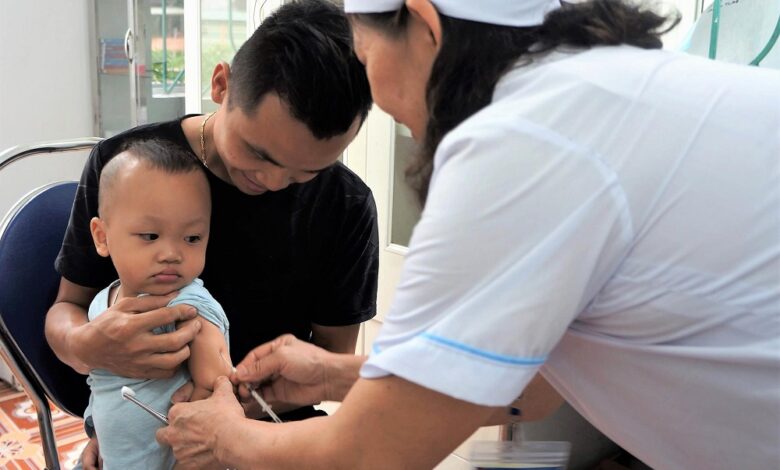
As the world celebrates the 50th anniversary of the World Health Organization’s (WHO) Expanded Programme on Immunization (EPI) in 2024, we look at the many achievements of the program, and highlight the impact of vaccinations in saving lives worldwide.
The EPI was launched in 1974 to serve as a global endeavor to ensure equitable access to life-saving vaccines for every child, regardless of their geographic location or socioeconomic status. Over the past five decades, EPI has evolved and achieved milestones that reshaped the global health landscape. This includes the eradication of smallpox in 1980, which stands as a monumental triumph in the history of immunization.
Similarly, thanks to a unique public-private partnership between WHO, Rotary International, the US Centers for Disease Control and Prevention (CDC), UNICEF, the Bill & Melinda Gates Foundation and Gavi, the Vaccine Alliance, polio has been reduced by more than 99 percent. The world stands on the threshold of eradicating a human pathogen globally for only the second time in history, after the eradication of smallpox.
In the 1980s, UNICEF and partners embarked on a bold mission — to immunize every child against preventable diseases. Governments and partners facilitated one of the greatest logistical mobilizations in peacetime history. By the early 1990s, global childhood immunization levels reached 80 percent. By 2021, in sub-Saharan Africa, a vaccination campaign led by WHO and later Gavi (a multilateral group formerly called the Global Alliance for Vaccines and Immunization), resulted in 68 percent of one-year-olds receiving a first dose of the measles vaccine, 78 percent receiving the tuberculosis vaccine, and 70–71 percent receiving the vaccines against hepatitis B, polio, and diphtheria/tetanus/pertussis.
Vaccines have emerged as a cornerstone of public health everywhere, preventing the spread of deadly diseases and saving countless lives. Since its inception five decades ago, the WHO program, now referred to as the Essential Programme on Immunization is estimated to have saved over 154 million young lives. Of this, 146 million lives were among children under five, including 101 million infants. Because the averted deaths were so concentrated among young people, who on average would go on to live for 66 years, vaccines are estimated to have given their beneficiaries an astounding nine billion additional years of life.
By strengthening healthcare systems and preventing illness, vaccination programs provide one of the highest returns on investment of any public health interventions. Every US$1 invested in vaccine programs returns an estimated US$20 in healthcare cost savings, lost wages, and lost productivity. Vaccination campaigns have led to massive gains in public health.
The measles vaccine, in particular, deserves pride of place; it is estimated to have averted 93.7 million deaths from 1974 onward. In terms of lives saved, the runners-up — tetanus (28 million lives saved), pertussis (13.2 million lives saved), and tuberculosis (10.9 million lives saved) — pale in comparison. All this data serves as a reminder that vaccines have historically been one of our best tools for saving lives and that redoubling efforts to discover and distribute new ones for diseases like malaria and tuberculosis could have a similarly transformative effect.














